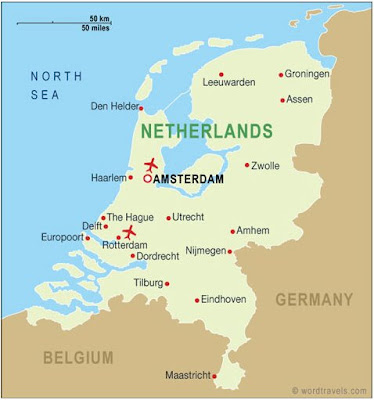
Al-Khansa adalah seorang wanita penyair yang tersohor di zaman Rasulullah saw. Nama bapanya adalah Amru bin al-Haris bin asy-Syarid. Ia adalah seorang ibu yang memiliki empat orang anak yang sangat ia cintai.
Rasulullah saw pernah meminta kepadanya untuk bersyair, maka beliau bersyair. Rasulullah saw menyahut, "Wahai Khansa' dan hari-hariku di tangan-Nya"
Salah satu syair Al-Khansa yang bagus:
Kedua mataku menangis dan tiada akan membeku
Bagaimana mata tidak menangis untuk Shakhr yang mulia
Bagaimana mata tidak menangis untuk sang pemberani
Bagaimana mata tidak menangis untuk seorang pemuda yang luhur
Ketika Adi bin Hatim datang kepada Rasulullah saw, dia berkata kepada Nabi, "Wahai Rasulullah saw, sesungguhnya di tengah-tengah kami ada orang yang paling ahli dalam syair, ada juga orang yang paling dermawan di antara manusia dan orang yang paling ahli dalam menunggang kuda."
Kemudian Nabi saw bersabda, "Siapakah nama mereka?" Adi bin Hatim berkata, "Adapun orang yang paling ahli bersyair adalah al-Qais bin Hajar, sedangkan yang paling dermawan adalah Hatim bin Sa'ad (yakni bapaknya Adi), adapun yang paling ahli dalam berkuda adalah Amru bin Ma'di Karib."
Rasulullah saw bersabda, "Tidak benar apa yang kamu katakan wahai Adi, adapun orang yang paling ahli dalam syair adalah Khansa' binti Amru, adapun orang yang paling dermawan adalah Muhammad (yakni Muhammad saw), sedangkan orang yang paling ahli berkuda adalah Ali bin Abu Thalib."
Maka tak heranlah bila Al-Khansa disebut sebagai wanita penyair dengan keistimewaannya, “Telah dikumpulkan para penyair dan ternyata tidak didapatkan seorang wanita yang lebih ahli tentang syair daripada beliau “
Suatu ketika, Khansa’ mendatangi Rasulullah saw bersama kaumnya dari Bani Salim, kemudian mengumumkan ke-Islamannya dan menganut aqidah Islam. Dengan kesungguhan Khansa dalam menganut Islam, ia menjadi lambang akan keberanian, kebesaran jiwa, serta kemuliaan bagi sosok wanita muslimah.
Salah satu prestasi yang mengagumkan adalah jihad Islam dalam membela kebenaran Islam. Khansa turut berperang bersama kaum muslimin dan menyertai pasukan mereka yang memperoleh kemenangan.
Ketika Mutsanna bin Haritsah asy-Syaibani berangkat ke Qadisiyah di masa Amirul Mukminin Umar bin Khaththab ra, Khansa’ berangkat bersama keempat putranya untuk menyertai pasukan tersebut. Di medan peperangan, di saat malam ketika para pasukan sedang siap berperang satu sama lain, Khansa’ mengumpulkan keempat putranya untuk memberikan petuah dan bimbingan kepada mereka dan mengobarkan semangat kepada mereka untuk berperang dan agar mereka tidak lari dari peperangan serta agar mereka mengharapkan syahid di jalan Allah swt.
Berikut ini adalah wasiat Al-Khansa’ kepada anak-anaknya:
“Wahai anak-anakku, sesungguhnya kalian telah masuk Islam dengan ketaatan, kalian telah berhijrah dengan sukarela dan Demi Allah, tiada Illah selain Dia. Sesungguhnya kalian adalah putra-putra dari seorang wanita yang tidak pernah berkhianat kepada ayah kalian, kalian juga tidak pernah memerlukan paman kalian, tidak pernah merusak kehormatan kalian dan tidak pula berubah nasab kalian. Kalian mengetahui apa yang telah Allah janjikan bagi kaum muslimin berupa pahala yang agung bagi yang memerangi orang-orang kafir, dan ketahuilah bahwa negeri yang kekal lebih baik dari negeri yang fana (binasa).
Kemudian beliau membaca sepotong ayat al Quran; Allah Azza wa Jalla befirman,
“Wahai orang-orang yang berfirman, bersabarlah kamu dan kuatkanlah kesabaranmu dan tetaplah bersiap siaga (di perbatasan) dan bertakwalah kepada Allah supaya kamu beruntung.” (Ali Imran: 20).
Maka, ketika datang waktu esok, jika Allah menghendaki kalian masih selamat, persiapkanlah diri kalian untuk memerangi musuh dengan penuh semangat dan mohonlah kepada Allah untuk kemenangan kaum muslimin. Jika kalian melihat perang telah berkecamuk, ketika api telah berkobar, maka terjunlah kalian di medan laga, bersabarlah kalian menghadapi panasnya perjuangan, niscaya kalian akan berjaya dengan ghanimah (rampasan perang) dan kemuliaan atau syahid di negeri yang kekal."
Keempat putra Khansa mendengarkan wejangan tersebut dengan penuh seksama. Mereka keluar dari kamar ibu mereka dengan tekad membara untuk menunaikan amanah jihad dan perjuangan. Ketika datang waktu pagi, mereka segera bergabung bersama pasukan dan bertolak untuk menghadapi musuh. Syair mereka lantunkan.
Anak yang tertua bersenandung:
Wahai saudaraku, sesungguhnya ibunda sang penasehat
Telah berwasiat kepada kita kemarin malam
Dengan penjelasan yang tenang dan gamblang
Maka bersegeralah menuju medan tempur yang penuh bahaya
Yang kalian hadapi hanyalah
kawanan anjing yang sedang menggonggong
Sedang mereka yakin bahwa dirinya akan binasa oleh kalian
Adapun kalian telah dinanti oleh kehidupan yang lebih baik
Ataukah syahid untuk mendapatkan ghanimah yang menguntungkan
Kemudian dia maju untuk berperang hingga terbunuh.
Lalu yang kedua bersenandung:
Sesungguhnya ibunda yang tegas dan lugas
Yang memiliki wawasan yang luas dan pikiran yang lurus
Suatu nasihat darinya sebagai tanda berbuat baik terhadap anak
Maka bersegeralah terjun di medan perang dengan jantan
Hingga mendapatkan kemenangan penyejuk hati
Ataukah syahid sebagai kemuliaan abadi
Di Jannah Firdaus dan hidup penuh bahagia
Kemudian dia maju dan berperang hingga menemui syahid.
Lalu giliran putra Al-Khansa’ yang ketiga bersenandung:
Demi Allah, aku tak akan mendurhakai ibuku walau satu huruf pun
Beliau telah perintahkan aku untuk berperang
Sebuah nasihat, perlakuan baik, tulus dan penuh kasih sayang
Maka, bersegeralah terjun ke medan perang yang dahsyat
Hingga kalian dapatkan keluarga Kisra (kaisar) dalam kekalahan
Jika tidak, maka mereka akan membobol perlindungan kalian
Kami melihat bahwa kemalasan kalian adalah suatu kelemahan
Adapun yang terbunuh di antara kalian adalah kemenangan dan pendekatan diri kepada-Nya
Kemudian, dia maju dan bertempur hingga mendapatkan syahid.
Lalu giliran putra Al-Khansa’ yang terakhir bersenandung:
Bukanlah aku putra Al-Khansa, bukan pula milik al-akhram
Bukan pula Amru yang memiliki keagungan
Jika aku tidak bergabung dengan pasukan yang memerangi Persia
Maju dalam kancah yang menakutkan
Hingga berjaya di dunia dan mendapat ghanimah
Ataukah mati di jalan yang paling mulia
Kemudian, dia maju untuk bertempur hingga terbunuh.
Berita syahidnya empat bersaudara itu sampai kepada ibunya yang mukminah dan sabar. Al Khansa, Sang Bunda, tidak menjadi goncang ataupun meratap, bahkan dia mengatakan suatu perkataan yang masyhur yang dicatat oleh sejarah dan akan senantiasa diulang-ulang oleh sejarah sampai waktu yang dikehendaki Allah. Ucap Al Khansa:
“Segala puji bagi Allah yang memuliakan diriku dengan syahidnya mereka, dan aku berharap kepada Rabb-ku agar Dia mengumpulkan diriku dengan mereka dalam rahmat-Nya”Al-Khansa wafat di Badiyah pada tahun 24 Hijriyah, yaitu di awal kekhalifahan Utsman bin Affan. Semoga Allah swt merahmati Al-Khansa, seorang ibu yang sungguh mulia dan patut dijadikan teladan bagi kita semua.





;032.jpg)
;036.jpg)
;035.jpg)
;038.jpg)
;039.jpg)
;040.jpg)
;041.jpg)











